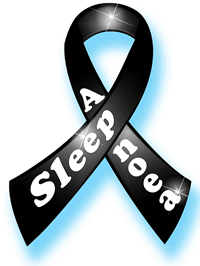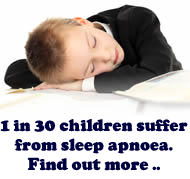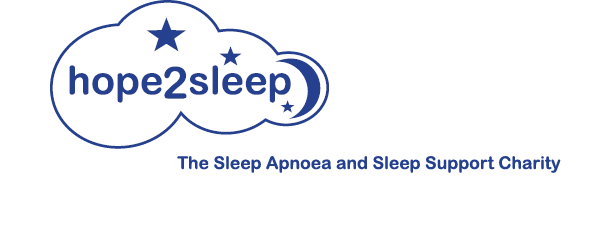| What Is Sleep Apnoea?The Greek word 'Apnoea' means 'Without Breath' which is where the name of the 'condition' called Sleep Apnoea (also spelt 'Apnea' in some countries) is derived from. Therefore, Sleep Apnoea means stopping breathing whilst sleeping! People with Sleep Apnoea stop breathing or struggle to breathe regularly during sleep, and most are unaware of this. Sleep Apnoea is a medical condition which has only been widely recognised and treated since 2008 in the UK, yet the latest statistics published by 'The Lancet' in 2019 claim that 8 million people in the UK suffer from Obstructive Sleep Apnoea (175 million in Europe and 936 million worldwide). According to the British Lung Foundation, approximately 1 in 30 children are also sufferers of Obstructive Sleep Apnoea, and unfortunately these children get branded with bad behaviour, learning problems and ADHD instead. It is of major concern that despite the above statistics, at least 80% of people remain undiagnosed and have no suspicion they're even suffering from this. Sleep Apnoea is a serious 'condition' untreated, due to the other medical conditions it exacerbates and causes:- Risks of Untreated Sleep Apnoea
In most cases, a person with Obstructive Sleep Apnoea will be a snorer, and mostly (unbeknown to them) will stop breathing many times a night, ranging from:-
*** AHI stands for Apnoea/Hypopnoea Index, which is the amount of times a person has an apnoea or hypopnoea PER HOUR! Apnoeas are when a person totally stops breathing and hypopnoeas are partial lack of breathing events. The apnoeas/hypopnoeas will happen whilst sleeping, and the brain (thankfully) sends messages to the body to start breathing again. Unfortunately this cycle will repeat itself throughout the night. The sufferer will often wake up feeling unrefreshed, but will not put this down to lack of sleep, as they are usually under the impression they have slept well, due to most people being unaware of what has been happening through the night. Some people do wake up gasping or choking though. It is normally the bed partner who may notice what is going on, and many have reported of hearing their bed partner snoring, followed by a silent pause when they suspect their partner has stopped breathing (which they have!). The sufferer will then usually make a snorting, choking or gasping noise, and they will start breathing again, but the cycle will continue throughout the night. It should also be pointed out that not everyone with sleep apnoea does snore. During apnoea/hypopnoea events, this often causes oxygen levels to drop, carbon dioxide levels to raise and the heart becomes stressed, increasing both blood pressure and heart rate. This obviously causes untold constant damage to the body, which is why it is important to treat sleep apnoea and any warning signs should not be ignored! **Incidentally, Kath Hope of Hope2Sleep had no idea she stopped breathing at all during sleep, never woke up choking and yet her AHI (apnoea/hypopnoea index) was 32 which is just into the severe range. Even her husband never spotted it!! Nighttime SymptomsA person with undiagnosed sleep apnoea may present some or all of the following symptoms:-
Daytime Symptoms
Causes for Obstructive Sleep ApnoeaThere are several different causes why a person has Obstructive Sleep Apnoea or how it can be made worse, as follows:-
Video Showing What Happens During Obstructive Sleep ApnoeaCauses for Central Sleep Apnoea(Central Sleep Apnoea is where the brain 'forgets' to send messages to the muscles to breathe and snoring is not always a sign of this). Sometimes there is no known cause. Conditions which may be associated with Central Sleep Apnoea include, but are not limited to, the following:
Mixed Sleep Apnoea or Complex Sleep ApnoeaPut simply, this is a mixture of both Obstructive Sleep Apnoea and Central Sleep Apnoea and is more complicated to treat. Sometimes Central Sleep Apnoea can become a problem when being treated for Obstructive Sleep Apnoea as often too high a CPAP pressure can actually cause central apnoeas. UARS (Upper Airway Resistance Syndrome)This form of sleep disordered breathing is not classed as Sleep Apnoea, but is very common when Obstructive Sleep Apnoea is suspected, yet not diagnosed on a sleep study. UARS does also often progress into Obstructive Sleep Apnoea with age, weight gain or other reasons. Please see our information page for UARS on this link 'What is UARS?' If You Suspect You May Have Sleep Apnoea, there are several routes to take and the most important advice is TAKE ACTION NOW!! Action To Take
Sleep Apnoea also affects children (possibly at least 1 in 30). Check out our dedicated page for Sleep Apnoea in Children. Epworth Sleepiness ScaleAlthough not foolproof, this Epworth Sleepiness Scale is what your GP and/or a Sleep Clinic would ask you to fill in, as a screening tool to assess the likelihood of people suffering from undiagnosed Sleep Apnoea. Please fill in this questionnaire as to how you feel most days in the following situations, as to the likelihood of you dozing off. Even if you haven’t done some of these things recently, try estimating how they may have affected you. Use the following scale to work out your scores:-
To check the criteria your score meets, please click this link.
To Download the Epworth Sleepiness Scale Questionnaire, fill in and take to your GP, please click on the following links:- PDF Document - Epworth Sleepiness Scale Questionnaire Word Document - Epworth Sleepiness Scale Questionnaire
Internet: https://eprovide.mapi-trust.org
Treatment for Sleep Apnoea
Self Help
Sleep Apnoea (Apnea) is a serious condition, due to its links with other life threatening illnesses. Not only will you lower your risks of these other medical conditions, but you should start to feel so much better in yourself when you are on successful treatment.
PLEASE, FOR YOUR SAKE AND YOUR FAMILY, DO NOT IGNORE YOUR SYMPTOMS, AND IF YOU SUSPECT SLEEP APNOEA, SEEK MEDICAL HELP NOW!! |
|
























